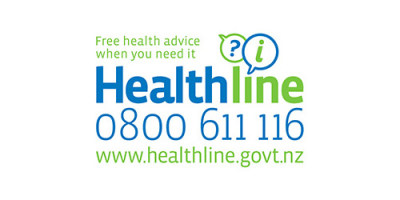COVID-19 vaccination update: 5,000+ vaccinated to date
Almost 6,000 people have received their first of two COVID-19 vaccine doses, since vaccinations started on 1 March.
What is the timeline for roll out of vaccines in Nelson Marlborough? Whose turn is it next?
The Government's national sequencing for vaccine distribution is described online here. The timeframes are approximate, may overlap and the actual start dates depend on when vaccines are delivered and whether there is community transmission at the time.
In the Nelson, Tasman and Marlborough region vaccination is being provided by specially-trained vaccinators from Te Piki Oranga, Nelson Bays Primary Health, Marlborough Primary Health and Nelson Marlborough Health.
On 1 March we started to vaccinate Group 1 members – border workers (ports) and the people they live with.
On 10 March we started to vaccinate Group 2 members – high-risk frontline health workers such as those who work in emergency departments, intensive care units, outpatient departments, maternity wards, mental health wards, laboratories and aged residential care facilities.
We also invited support staff such as orderlies, clinical administrators, facilities staff and cleaners who work in these areas. Approximately 15,500 Group 2 members will be offered vaccination between now and May.
In the week starting 29 March – we started offering vaccination across the whole district to people who live in community environments where there's a higher risk of COVID-19 spreading. This includes aged residential care facility residents and older Māori and Pasifika people who are cared for by their whānau.
In April – we started to offer occasional vaccination to Group 3 members who are aged 65 years and older. Vaccines are offered by appointment and when spaces come up, we offer them first to Group 2 members so that the vaccine doesn't expire and is wasted. People can't always come to an appointment at short notice however, which is why we are offering bookings to people aged 65+ (Group 3).
How many people have been vaccinated to date?
As at 8 April 2021
|
|
NELSON CLINICS |
TASMAN CLINICS |
MARLBOROUGH CLINICS |
TOTALS |
|
|
3849 |
903 |
1194 |
5946 |
Please note: These are the numbers of people vaccinated at Nelson, Tasman or Marlborough locations. They are not the numbers of Nelson, Tasman or Marlborough residents who have received vaccination – ie, someone who lives in Richmond (Tasman) may have had their vaccine at Nelson Hospital.
When will I get my turn?
What group you're in depends on your age and situation. You can use the Unite against COVID-19 tool to find out what group you're probably in and when you can get a vaccine.
Where can I find information about the vaccine?
There is a lot of useful information available online, eg about vaccine safety, how vaccines are approved and side effects. When looking for information, please prioritise evidence-based websites and social media, and encourage your colleagues, friends and whānau to do so also. The most reliable sources of information, made specifically for consumers, are:
- The Ministry of Health website (and social media)
- The Unite Against COVID-19 website (and social media)
- The Immunisation Advisory Centre website
- Medsafe NZ website
COVID-19 information: How to tell if a website or social media site is credible
There is a lot of information online - it can be difficult to know what’s reliable. Here are five tips to help you make sure what you read online is from a reliable source:
- Understand the publisher. Anyone on the internet can publish anything they like. It's important to understand the goals of that publication. You can often learn about a website's background by reviewing a website's 'About' page.
- Check the sources. The sources of an article are a strong reflection of an article's quality. If the article doesn't list sources, ask yourself - where is this information coming from? If the article does list sources, check them and make sure you believe they are authoritative.
- Check the date. You can usually find this at the top or bottom of the page. Recently written articles are more likely to be trustworthy than outdated articles.
- Check grammar and spelling. Poor grammar and multiple spelling mistakes could be a flag that the information you are reading is not trustworthy.
- Check the site design. Reputable publishers put a lot of effort into making sure their articles are easy to read. If the page you are on has advertising that blocks you from reading the article, or formatting that makes it difficult to read, then those are signs the publication is not trustworthy.





